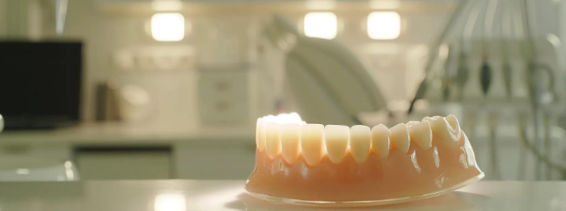Understanding Dental Veneers
Many people wonder how to enhance their smiles while maintaining good oral hygiene. Dental veneers are a popular solution, often made from porcelain, that can improve the appearance of teeth. This article will cover what veneers are, their benefits for tooth aesthetics, and their role in preventing tooth decay. Readers will gain valuable insights into how these treatments can enhance their smiles and support long-term oral health, addressing common concerns about maintaining a healthy and attractive smile.
Key Takeaways
- Dental veneers enhance smiles by covering imperfections and improving aesthetics
- Porcelain veneers are durable and resist staining, offering a natural appearance
- Composite veneers provide a cost-effective and quicker smile enhancement option
- Proper oral hygiene is essential for maintaining gum health around veneers
- Consulting a dentist helps determine the best veneer type for individual needs
What Are Dental Veneers?
Dental veneers are thin shells made from materials like dental porcelain, designed to cover the front surface of teeth. Their primary purpose is to improve aesthetics, often linked with tooth whitening and enhancing the overall appearance of a smile. There are various types of veneers available, including traditional and no-prep options, catering to different orthodontics needs and personal preferences.
Definition and Purpose
Dental veneers serve as a cosmetic enhancement by covering imperfections such as discoloration, gaps, or minor misalignments in teeth. These thin shells, commonly made from dental porcelain, are custom-fitted to each tooth to create a natural and appealing appearance. One important consideration is the longevity of veneers; patients often inquire about how long veneers last, as this factor plays a significant role in the decision-making process for their dental health.
The placement of veneers can also impact the health of the gums and surrounding tissues. Proper oral hygiene practices are essential, including the use of dental floss to maintain healthy gums alongside the veneers. This proactive care helps minimize issues related to gum irritation or decay. Ultimately, veneers offer a solution for individuals seeking to enhance their smiles, contributing positively to their overall self-esteem and confidence.
Types of Veneers
There are several types of dental veneers available, each catering to specific patient needs and preferences. Porcelain veneers are among the most popular options, known for their durability and natural appearance when enhancing a smile. They resist staining better than other materials, making them an excellent choice for individuals concerned about the effectiveness of their oral care routine, including the use of specific toothpaste brands that may affect tooth surface integrity.
In contrast, composite veneers utilize a resin that is bonded to the tooth’s surface, allowing for faster application and adjustments during the procedure. These veneers can be more cost-effective and versatile for patients looking for a quicker smile enhancement. While they may not last as long as porcelain veneers, proper maintenance and care can significantly extend their life, providing a reliable cosmetic solution. Patients should consult their dentist to determine the best type based on their dental conditions and aesthetic goals.
Conclusion
Understanding dental veneers is essential for individuals seeking to enhance their smiles and boost their confidence. These cosmetic enhancements address imperfections such as discoloration and minor misalignments, providing both aesthetic appeal and longevity. Different types of veneers, including porcelain and composite options, cater to various needs, encouraging patients to consult dental professionals for personalized advice. By maintaining proper oral hygiene and following care recommendations, patients can enjoy the benefits of veneers while ensuring their overall dental health.
Frequently Asked Questions
What materials are commonly used for dental veneers?
Dental veneers are typically made from two primary materials:
- porcelain
- composite resin
. Porcelain offers durability and a natural appearance, while composite resin provides a more affordable option with easier application techniques.
How long do dental veneers typically last?
Dental veneers typically have a lifespan of approximately 10 to 15 years, depending on factors such as oral hygiene, material quality, and wear. Regular dental check-ups help maintain their longevity and overall appearance.
Can dental veneers be removed or replaced?
Dental veneers can be removed or replaced by a dental professional, but the procedure involves careful assessment and preparation. Replacement may be necessary due to damage, staining, or changes in dental health.
What is the process for getting dental veneers?
Getting dental veneers involves a consultation, tooth preparation, impressions, and finally, the placement of custom-made veneers to enhance smiles and improve teeth appearance. Regular follow-up appointments may also be necessary for optimal results.
Are dental veneers suitable for everyone?
Dental veneers are not suitable for everyone; factors such as oral health, tooth structure, and personal expectations can influence candidacy. A thorough consultation with a dentist will help determine the best options for individual needs.
